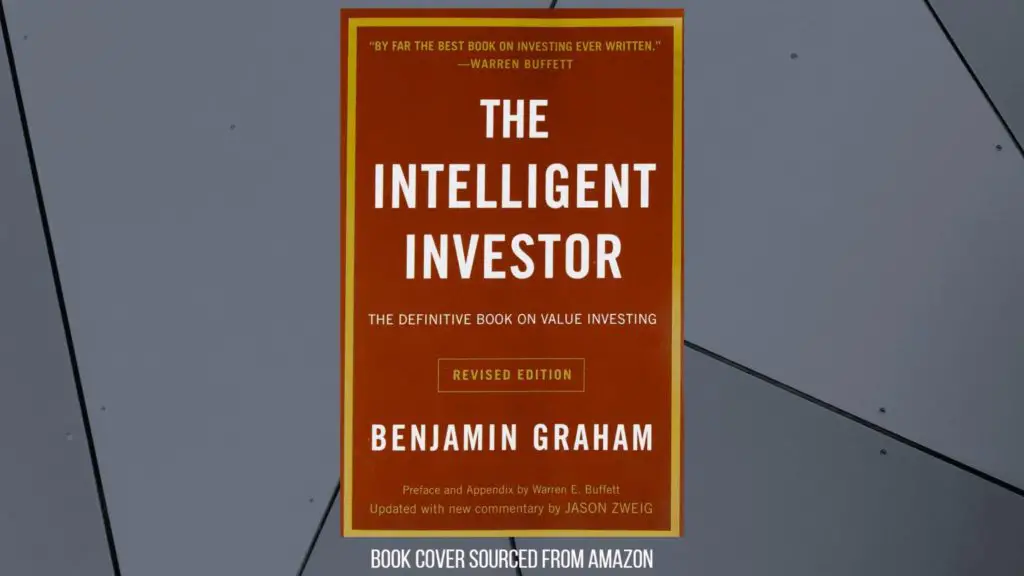This post may contain affiliate links, which means I’ll receive a commission if you purchase through my links, at no extra cost to you. Please read full disclosure for more information.
Credit cards work by offering you a line of credit that you can use to make purchases as well as balance transfers and cash advances.
With a credit card, you are borrowing money from the card issuer that you are required to pay back. You pay back the amount you borrowed along with any other interest and fees related to the card.
When credit cards are used appropriately, they can allow you to finance purchases, spend securely, give you access to perks, and earn rewards on your spending.
It is important to know the full scope of how credit cards work and that is what we will dive into in this blog post.
WHAT IS A CREDIT CARD?
A credit card is a card, usually plastic (metal if you have a premium card), that allows a cardholder to make purchases with borrowed funds from the card issuer.
When you sign up for a credit card, you agree to terms that hold you accountable for paying back the funds you borrowed, plus any interest and fees disclosed in your credit card agreement.
If you pay off your card on time and pay the full outstanding balance at the end of each month, you won’t have any problems with paying interest.
Today, there are a variety of credit card offerings out there.
Some examples include:
- “Plain-vanilla” cards
- Rewards cards
- Student cards
- Charge cards
- Secured cards
- Prepaid cards
- Balance transfer cards
- Business cards
Each come with their own characteristics, terms, and applications of use.
Before we go deeper, let me list out a credit card glossary of terms so you have an understanding through the rest of the post.
Glossary
Annual Percentage Rate (APR): The price you pay for borrowing money through a credit card stated as a yearly interest rate
Available credit: The amount of credit left you have available to use. It is your credit limit minus your outstanding balance
Balance: The amount you have spent on your credit card that is outstanding and needs to be paid back
Billing cycle: The period of time between your monthly bills where you make purchases
Credit limit: An amount determined by the credit card issuer that is the maximum amount you can charge to your card. Higher credit limits come with higher incomes, credit scores, and length of time with the issuer
Credit score: A 3-digit statistical number that determines your creditworthiness and likelihood to repay borrowed amounts
Minimum payment: The minimum amount your credit card issuer requires you to pay each month on your outstanding balance. This is the minimum amount you can pay to avoid penalties
Statement due date: The date on your credit card bill which you must pay your minimum payment by. Failing to pay by this date will result in penalty charges
Utilization: The ratio of your outstanding credit card balances over your credit card limit. If you a balance of $500 and your limit is $1,000, your utilization is 50%. You generally want this under 30%, as it affects your credit score
CREDIT CARD VS DEBIT CARD
Credit cards and debit cards are often thought to be the same, given their identical appearances and the fact they are usually issued by financial companies that offer both.
The main difference between the two is that when you use a debit card, the funds to purchase are withdrawn from your available funds you have deposited with your bank within your checking account.
When you use a credit card, the funds to make a purchase are borrowed from the issuer of the credit card.
Pros and cons of credit and debit cards:
Credit Cards
Pros:
- Help you build a credit history
- Provide flexibility to finance and borrow funds to pay for at a later date
- Provide more protection against fraud than a debit card
- Potential to earn rewards
- Extensive variety of perks
Cons:
- High interest rates
- Fees such as membership fees and late fees
- Require an application and approval to receive a card
- Funds you spend aren’t yours and must be paid back timely
- It’s easy to spend large sums
- Potential for financial disaster if not managed responsibly
Debit Cards
Pros:
- Avoid debt since funds are withdrawn from your account
- No annual membership fees
- No late fees
- Easy to get
- Readily accepted
Cons:
- Doesn’t build your credit
- No rewards or access to perks
- Less protection from fraud
- You can only spend what is available in your account
IS USING A CREDIT CARD A GOOD IDEA?
With knowledge of the pros and cons of debit cards and credit cards you can decide for yourself whether a credit card is a good fit for you.
Generally, I believe credit cards can be a great financing tool that can beneficial if used responsibly.
They can provide financial flexibility when making large purchases that you would otherwise not be able to do with your debit card. Also, having a line of credit can act as an emergency source of funds if something were to come up that required immediate payment.
Taking advantage of perks and benefits that credit card issuers offer can also justify the use of a credit card.
The biggest thing is to understand your spending habits and capabilities.
You don’t want to spend money you don’t have. In other words, you don’t want to run up a $1,000 credit card bill if you are unable to repay that amount within the time period.
Be aware of the terms of your credit card, due dates, interest rates, and all other important information.
By being aware and responsible, a credit card can be a good option for you.
HOW TO USE A CREDIT CARD
You can use a credit card for goods and services, but you can also be strategic about your use with a credit card.
Here are some things you can do:
- Use your card to build up your credit
- Take advantage of cards with an introductory 0% APR to finance purchases
- Earn rewards and cashback
HOW TO GET A CREDIT CARD
Getting a credit card is a simple process involving an application to the credit card issuer.
When you apply, you will enter some mandatory information about yourself and your finances.
The issuer will analyze your creditworthiness through a credit check and will decide if you are suited for their credit card.
Your credit score is a large factor in the decision and different cards have different credit requirements.
Cards are offered in tiers, available to those with low credit scores up to those with excellent credit scores.
To increase your chances of getting approved, here are some tips:
- Maintain a high credit score
- Check your credit report for a gauge on health and any errors
- Keep the number of applications for credit low and spaced out in time
- Pay off your existing outstanding debts
- Apply for cards within your credit level
- Accurately report your income and finances on the application
WHAT SHOULD YOU KNOW ABOUT A CREDIT CARD?
The big three things you should understand about a card include:
- Type of card
- Interest
- Fees
Type of Card
You want to understand the type of card you are using, the terms that come along with it, and what the benefits of the card are.
Is it student credit card?
Is it a rewards card? What type of rewards card? Travel?
Is it a balance transfer card?
Do some research and find out these things to find what suits you and your intent for the card
Interest
Different cards come with different interest rates.
There will be different APR’s for regular purchases, balance transfers, cash advances, and introductory periods.
Some cards offer an introductory APR of 0% for periods from 12-18 months!
Understanding the associated interest rates of a card will help you strategize and calculate the math on which financial moves you make with the card.
Fees
The common theme here is that different credit cards from different issuers have their own characteristics.
Fees are the same.
Some fees you may encounter include:
- Annual fee
- Late payment fee
- Balance transfer fee
- Cash advance fee
- Card replacement fee
- Foreign transaction fee
- Fees for purchasing over your credit limit
Some cards may have all the listed fees, some may have only a few of them, and some may have abnormally high or low fees for any on the list.
HOW TO CHOOSE A CREDIT CARD?
Choosing a credit card can be tough with so many options out there these days.
Credit cards are offered by your household name financial institutions, but are now offered by retailers, grocery stores, airlines, and a bunch more.
Choosing which one is right for you will take a bit of research on your end.
Ultimately, you’ll need to decide your intent for the card and what you are able to get based on your creditworthiness.
Here are some things to consider when choosing a credit card:
- What is my credit score and what can I qualify for?
- What are my spending habits? Would I be responsible enough for a credit card?
- What rewards do I want? Cashback? Travel? Discounts?
- Do I want a card with a 0% introductory APR?
- Do I want to be able to transfer a balance from one card to another?
- Do I want to pay an annual fee or not? How big of a fee am I willing to pay?
HOW TO HANDLE AND MANAGE A CREDIT CARD
Having a credit card is a big responsibility that can have substantial consequences if not handled correctly.
Slip ups with late payments, spending more than your limit, and spending more than you are capable of paying back can lead to a large financial burden.
With the large interest rates, compound interest can work against you and if the amount is large enough, you can find yourself buried in credit card debt with a poor credit score.
Although these situations are possible and responsibility is a must-have, if you do some simple things the right way, you’ll be just fine!
To help manage your credit card, you can follow the tips below:
- Read and understand the terms and conditions
- Understand the numbers behind the interest rates, fees, credit limits, etc
- Keep track of balances and payment dates
- Set up auto-pay so your bills are paid automatically
- Set up alerts on your phone so you receive a push notification for any purchase. This helps you keep track of each charge on your card and can help you identify fraud quickly
SUMMARY
Credit cards can be confusing if you have never used them or learned about them before and it’s easy to see why.
There are so many options and variations out there that you can get lost trying to figure out what you want and what you can qualify for.
Maybe you went to a school that touched on personal finance, but my high school didn’t. Even in college as a Finance major, we hardly discussed credit cards.
There are many topics and terms in this blog post that are deserving of their own separate blog posts.
For this one, I just scratched the surface on them to help you understand the basics of how credit cards work. As this blog evolves, I’ll be sure to dive in to the inter-workings of credit cards.



